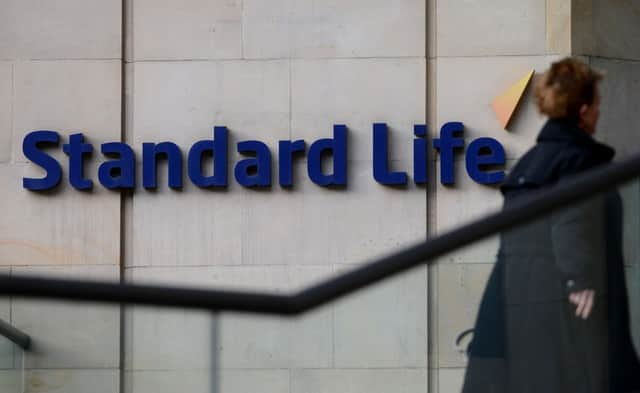Backlash looms over Standard Life's £11bn AAM deal
This article contains affiliate links. We may earn a small commission on items purchased through this article, but that does not affect our editorial judgement.


His comments came as other financial figures gave warning that the blockbuster marriage between the two major Scottish fund managers had strong strategic logic but risked being derailed by a Holyrood furore if the repercussions include big job losses.
Mathewson, who grew RBS into a highly profitable bank as chief executive and then chairman, said the deal outlined by Edinburgh-based life assurer and fund manager Standard Life and AAM threatened to reduce choice for investors.
Advertisement
Hide AdAdvertisement
Hide AdHe told The Scotsman: “I think the reduction in diversity is regrettable. It hastens the move towards (an attitude) of ‘why bother, we will just invest in an index fund’.
“I find it kind of regrettable without rationalising my reasons for the regret, possibly a feeling shared by many. This idea whereby we take a big investment fund that has a speciality like emerging markets (AAM) and put it with Standard Life. What are we doing?”
Mathewson, whose handover to successor Fred Goodwin led to even faster growth at RBS before the bank’s eventual spiral into severe losses and majority taxpayer ownership, was sceptical whether the mooted merger would see the creation of a business “more efficient or better quality”.
He added: “Can the customers not get the same thing by investing in something in each of them and retaining the flexibility of deciding their own ratios?”
Under the proposals outlined on Saturday evening, investors in Standard Life, which has a big UK pensions arm, would own two-thirds of the new entity, with Aberdeen’s investors the other third.
AAM is believed to have talked to other potential partners after the battering Asian emerging markets had received in recent years led to 15 successive quarters of net withdrawals from its funds.
A senior source in the Scottish fund management industry said: “The deal makes huge strategic sense, an absolute no-brainer. You can see the commercial and industrial logic.
Advertisement
Hide AdAdvertisement
Hide Ad“But its clearly not good for Edinburgh and it won’t be good for Scotland. It is based on cost synergies and it will be bad for jobs. I have no doubt that First Minister Nicola Sturgeon will get pulled into this. It will be politically charged.”
About £200m of cost synergies are expected from the deal.
The source also derided the suggestion that Standard boss Keith Skeoch and his AAM counterpart Martin Gilbert would be co-chief executives of the group.
“That’s clearly not workable. Martin has built the business over 30 years, and it is a big achievement, but there is a time to hand the baton on,” he said.
